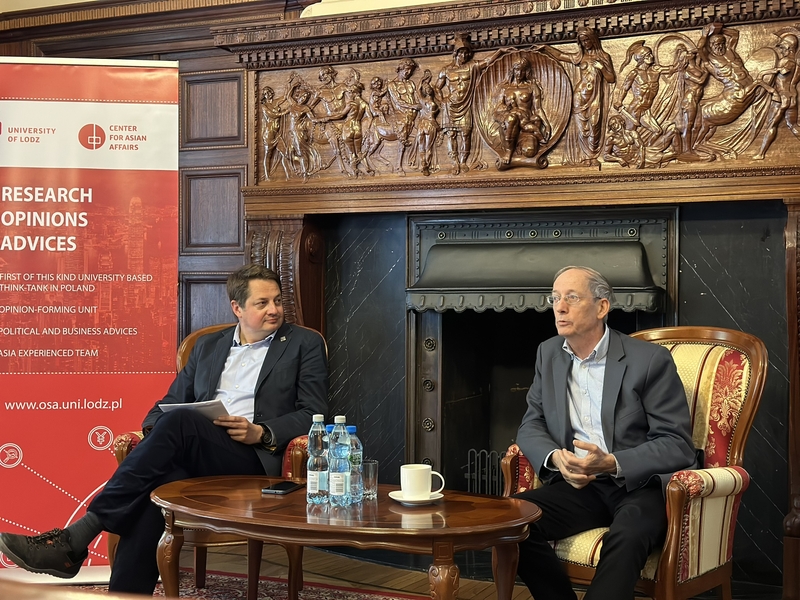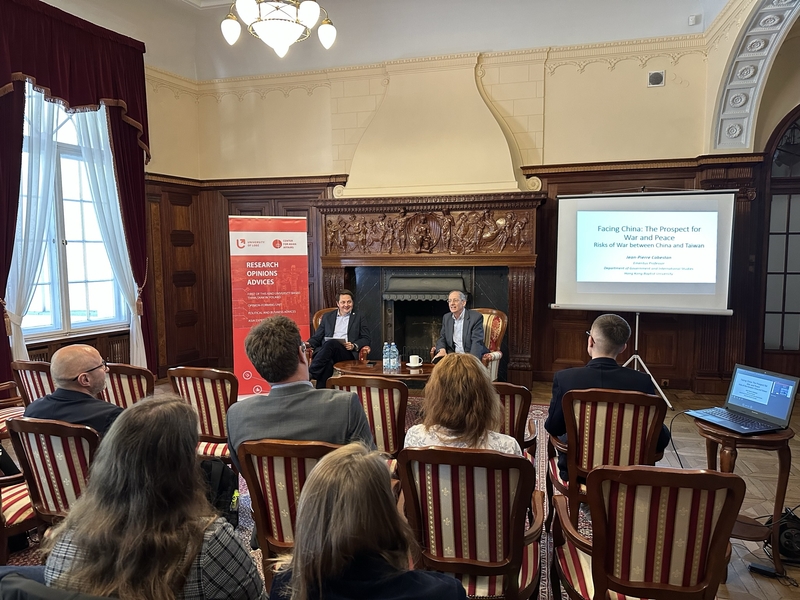During the lecture, Professor Cabestan discussed the disputed areas in the vicinity of the People's Republic of China and the actions of the Chinese leading to the increase of tensions in the region. In addition, Professor Cabestan pointed to elements of strategic Chinese culture, the main motive of which are activities in the "grey zone", such as disinformation activities. With regard to relations with Taiwan, which are the most important from Beijing's point of view, Jean-Pierre Cabestan stated that even though the Chinese armed forces carried out numerous activities, a "hot conflict" was unlikely, and China should still be referred to as a "rational actor". However, more importantly, one of the elements of limiting the military operation is the position of Chinese society, which is unwilling to make sacrifices in the face of the "one child" policy.
After nearly an hour of lecture, a discussion took place in which, among other things, the role of the European Union in operations in the Indo-Pacific, the question of Japan's influence on Taiwan, as well as the internal arrangement within the Chinese Communist Party with regard to future reunification with Taipei.
It was a great and rare opportunity to talk with Polish experts on Asia and China about the risk of an armed conflict between China and Taiwan, mainly in the context of Russia's war in Ukraine
– said Professor Cabestan after the meeting.


